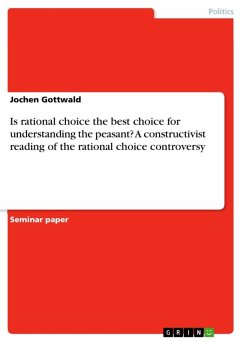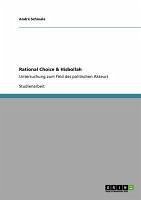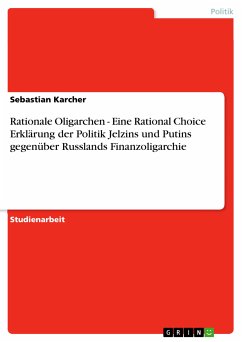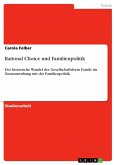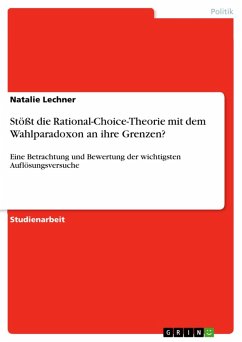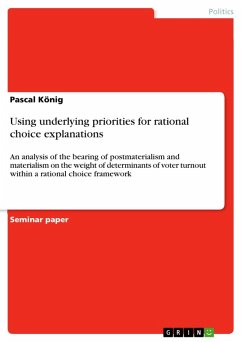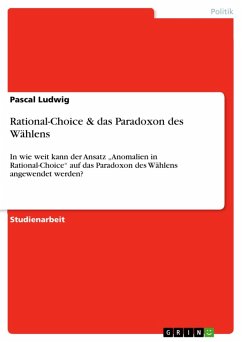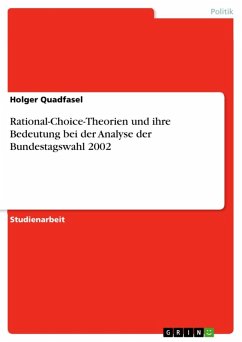Seminar paper from the year 2003 in the subject Politics - Region: South Asia, grade: 1,0, University of Heidelberg (Südasieninstitut Abteilung Politische Wissenschaft), course: Rationalität und Politik in Südasien: Kultur, Kontext und vergleichende Politikwissenschaft, language: English, abstract: In this essay I will try on the one hand to critically examine the reservations held against rational choice by many anthropologists, by offering a constructivist analysis of the debate, on the other hand to help bridging the gap between constructivism and rational choice theory, which is, in my eyes, unnecessarily kept wide by scholars of both disciplines, what led to the emergence of flawed models of rationality like 'bounded rationality' in the struggle of rational choice scholars to defend their assumptions. By arguing that models of rational choice are a legitimate variety in the broader context of construed attempts to explain social phenomena, I will show that it should be possible to hypothesize political action by rational choice models without curtailing the meaning of rationality. As empirical variable I chose the political behavior of the peasantry in Indian villages, as the peasant seems to be the anthropologists' stereotype for culture's dominance over actors' preferences. For that reason I will mainly use Mitra's article "Ballot-Box and Local Power: Elections in an Indian Village" (Mitra 1999, fn. 12), to highlight the possible synergies of constructivism and rational choice theory on the critical edges of their approaches. Nonetheless it will be necessary to make a quick excursion into Kant's moral philosophy to expose the obscurity in our modern concept of rationality, which I consider responsible for the current dispute about the legitimacy of rational choice theory.
Dieser Download kann aus rechtlichen Gründen nur mit Rechnungsadresse in A, B, BG, CY, CZ, D, DK, EW, E, FIN, F, GR, HR, H, IRL, I, LT, L, LR, M, NL, PL, P, R, S, SLO, SK ausgeliefert werden.

